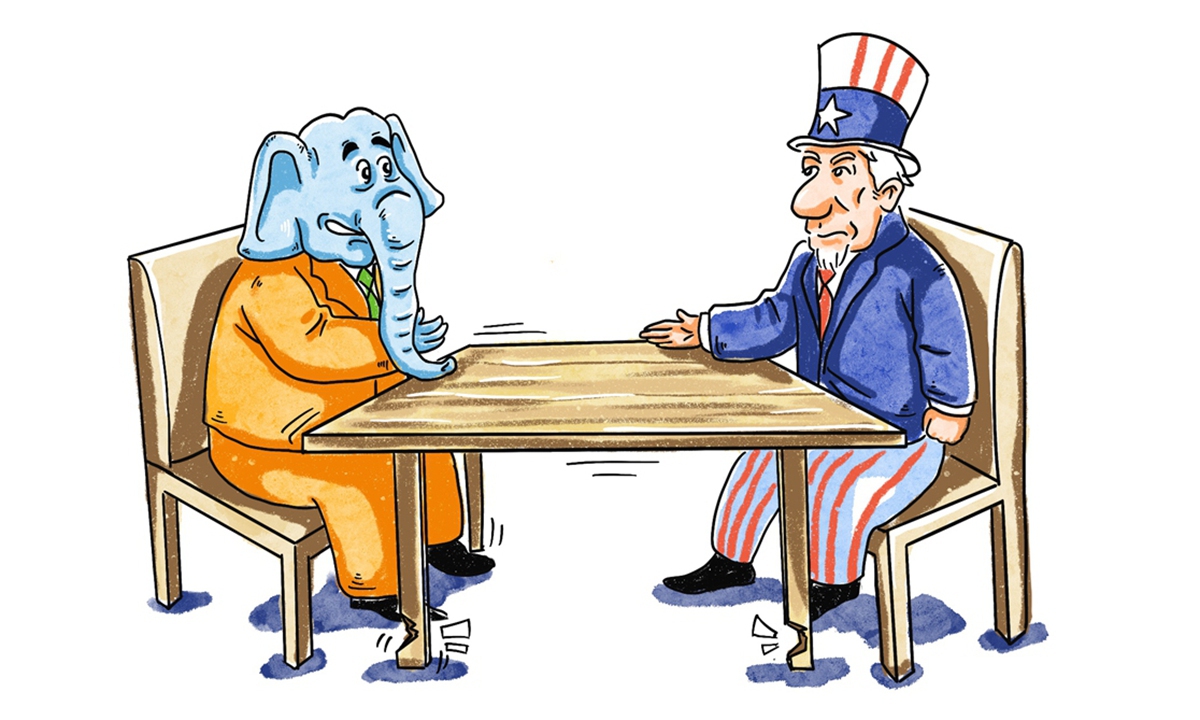-

- Liu Zongyi
- Associate Research Fellow
- Center for Asia-Pacific Studies
- Institute for International Strategic Studies
- A ‘China hand’ from India bears high hopes amid the current stalemate
- India rebalances between US, Russia, but China strategy remains unchanged
- ISRO-OPPO deal benefits India; less hostility is needed
- US efforts to isolate China from solar industry to end in futility
- Time for New Delhi to reconsider its anti-China economic policy
- How to Make a Truly Democratic and ...
- China can inject new dynamics into ...
- How G20 meeting could defuse world ...
- Can China help shape global governa...
- Greater Role to Africa and Developi...
- A New Beginning for the G20
- G20 plays a key role in sustainable...
- Implementation of the 2030 Agenda b...
- How the G20 can bring about a more ...
- G20 shouldn’t be distracted by geop...
- Fostering the cross-border infrastr...
- Identifying and Addressing Major Is...
- The Russia-India-China Trio in the ...
- Wuhan 2.0: a Chinese assessment
- The Belt and Road Initiative and Th...
- The Belt and Road Initiative and Th...
- The Future of China-India Relations
- New Developments Impacting Asia Pac...
- ASEAN, China and the South China Se...
- Averting Conflict in the South Chin...
- G20 Development Agenda and 2030 Age...
- Coronavirus Battle in China: Proces...
- China’s Fight Against COVID-19 Epid...
- Revitalize China’s Economy:Winning ...
- International Cooperation for the C...
- Working Together with One Heart: P...
- The Tragedy of Missed Opportunities
- The Tragedy of More Missed Opportun...
- Addressing the Vaccine Gap: Goal-ba...
- The G20’s Sovereign Debt Agenda:Wha...

Illustration: Tang Tengfei/GT
India's External Affairs Minister Subrahmanyam Jaishankar has reportedly started a five-day visit to the US from Monday. Jaishankar will hold discussions with his US counterpart Antony Blinken and other Biden administration officials with a focus on COVID-19 vaccines and US-India relations, according to Indian media outlets.
As India is engulfed by an unprecedented public health crisis and the economic predicament caused by the resurgence COVID-19, Jaishankar's visit is a clear bid to seek US support to build up vaccine supply at home and save a faltering Indian economy. During the visit, Jaishankar will attend two events on economic and COVID-19 related cooperation, India's NDTV reported.
The primary goal of Jaishankar's US visit is to seek more vaccines from the US and to explore the possibility of joint vaccines production. On the one hand, India needs to narrow its vaccines supply gap to solve an emergent humanitarian crisis.
On the other hand, to conduct vaccine cooperation with the US is also in line with India's long-standing goal to grab a share of the global supply chain and build up its own manufacturing ability. The US can provide assistance to India in terms of providing vaccine raw materials, key equipment and know-how.
However, if India is attempting to use that ability of vaccine production as an opportunity, trying to change the industrial chain from China to India, their political calculation will encounter failure.
In fact, at the online summit of the US, Japan, Australia and India on March 12, the four nations reached an agreement on vaccine production expansion. The US and Japan agreed to provide funds and technology, and Australia to provide the means of circulation to help India produce vaccines. But with the voracious outbreak of virus in India, this agreement has failed completely.
Since the pandemic began, India has made strategic mis-calculation that it has an opportunity in its hand to attract foreign investment from China. India still holds that delusion today even as it has been proved not working. When it deals with its relationships with China and the US, India holds a clear stance that it will continue to confront China, while tilt toward the US.
India's calculation is poised to fail. The recent coronavirus resurgence in India shows that the country is not up to managing a transition of key elements of global supply chains. Since the Trump administration, the US has made it very clear that its main goal is to promote the return of such industries and capital to the US, rather than to India.
In the process of upgrading industrial supply, a few companies in China are moving to Southeast Asia or African countries. The reason why they were not moving to India is clear: the diplomatic tensions between China and India and the discriminatory policies of the Indian government have made it impossible for Chinese companies to expand business in India as before.
A few days before Jaishankar's visit to the US, he said that China-India relations are at a crossroads. However, he again emphasized competition with China instead of cooperation, and again blamed China for the border clash last year.
When India's strategy to tilt toward the US to contain China has been proved to be wrong, maybe it's time for core policy makers in New Delhi to reckon with its strategy.
Source of documents:Global Times, May 24, 2021
